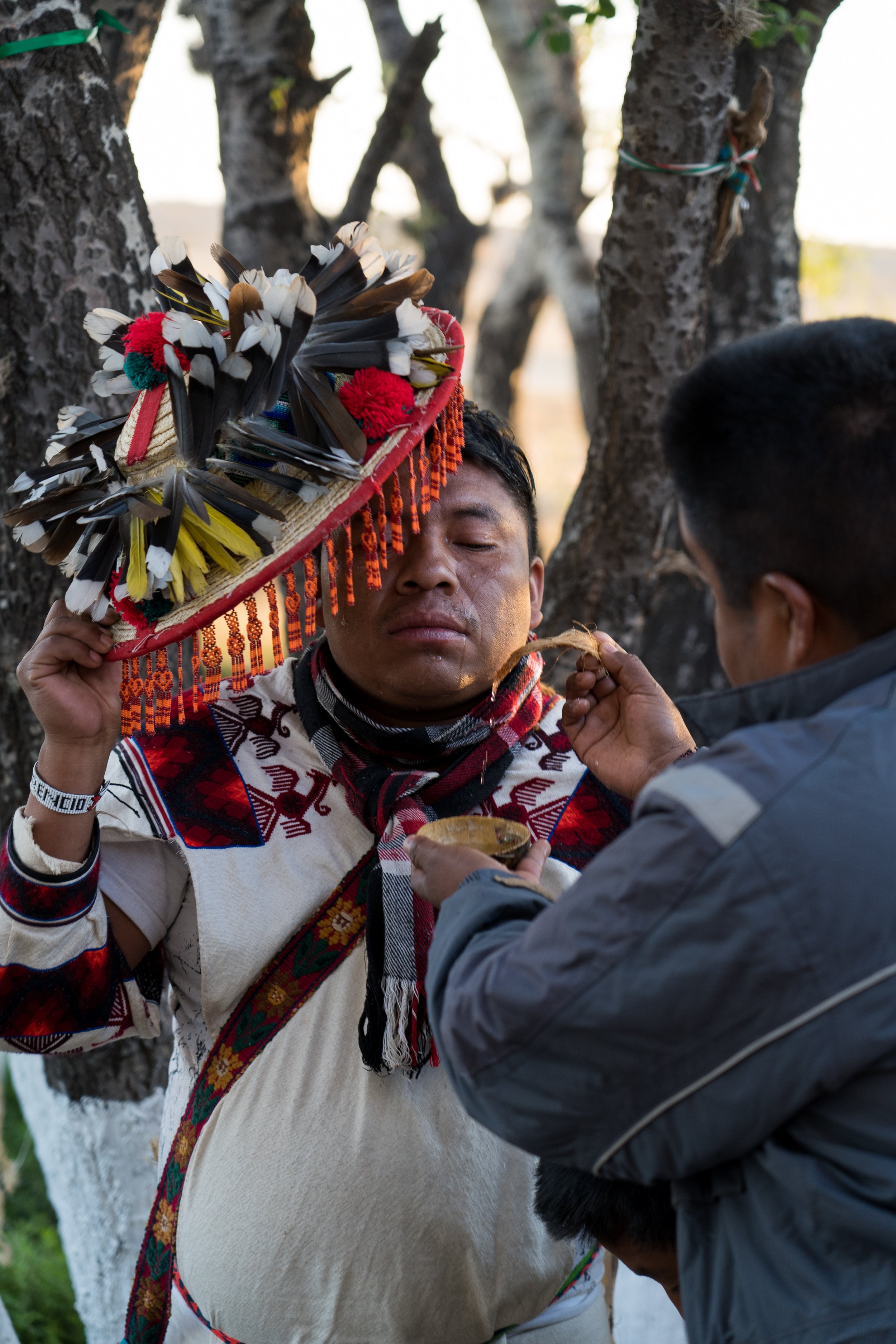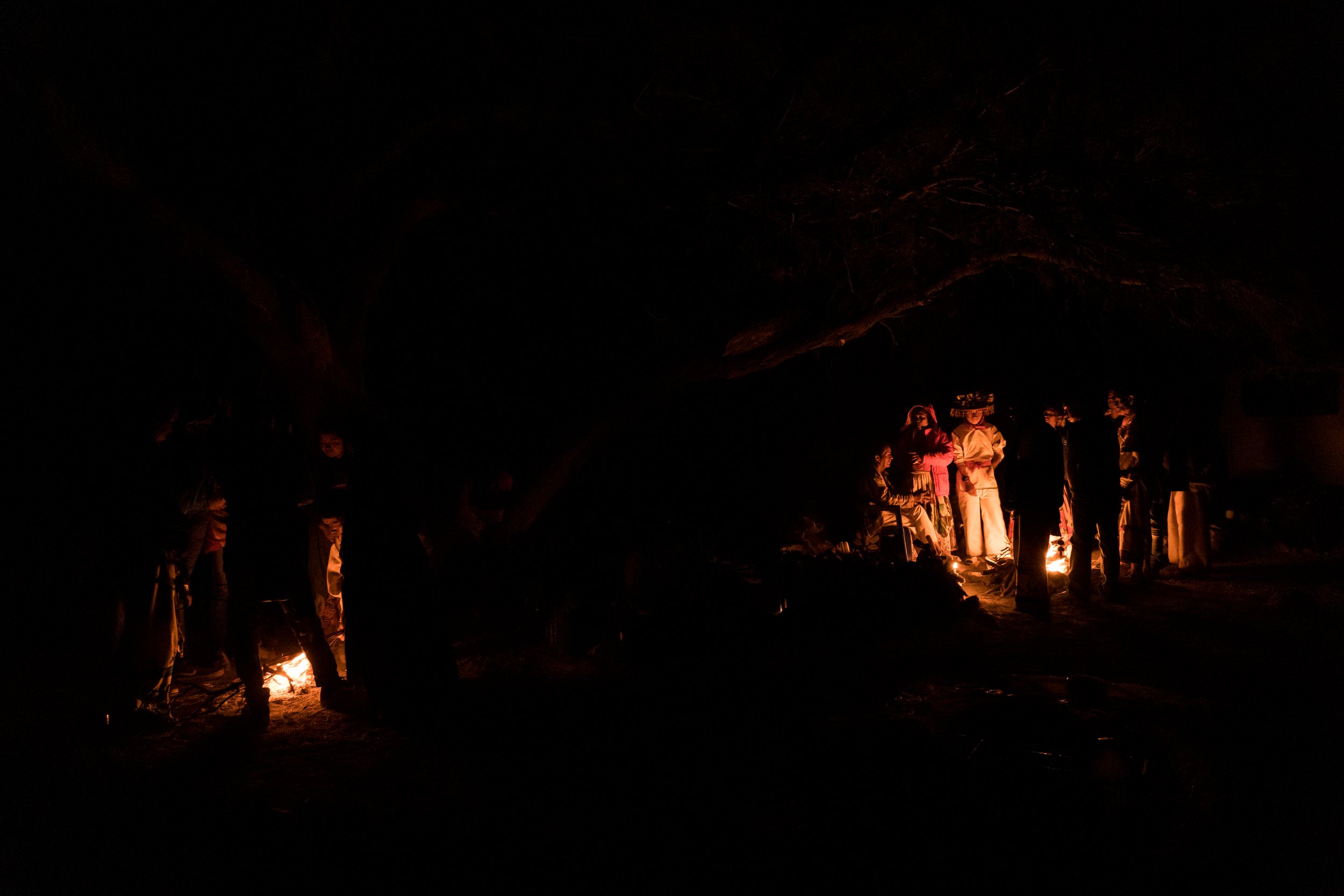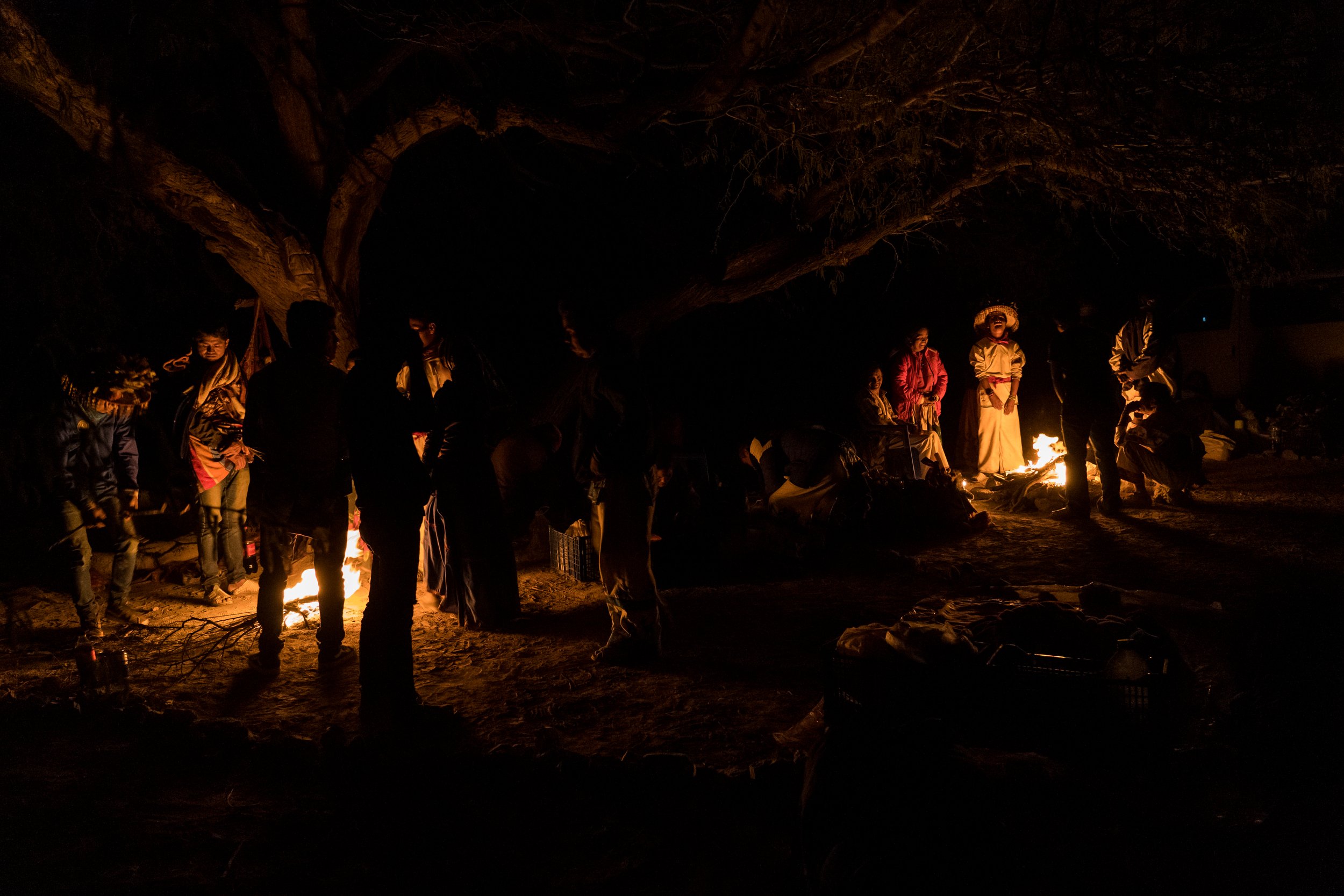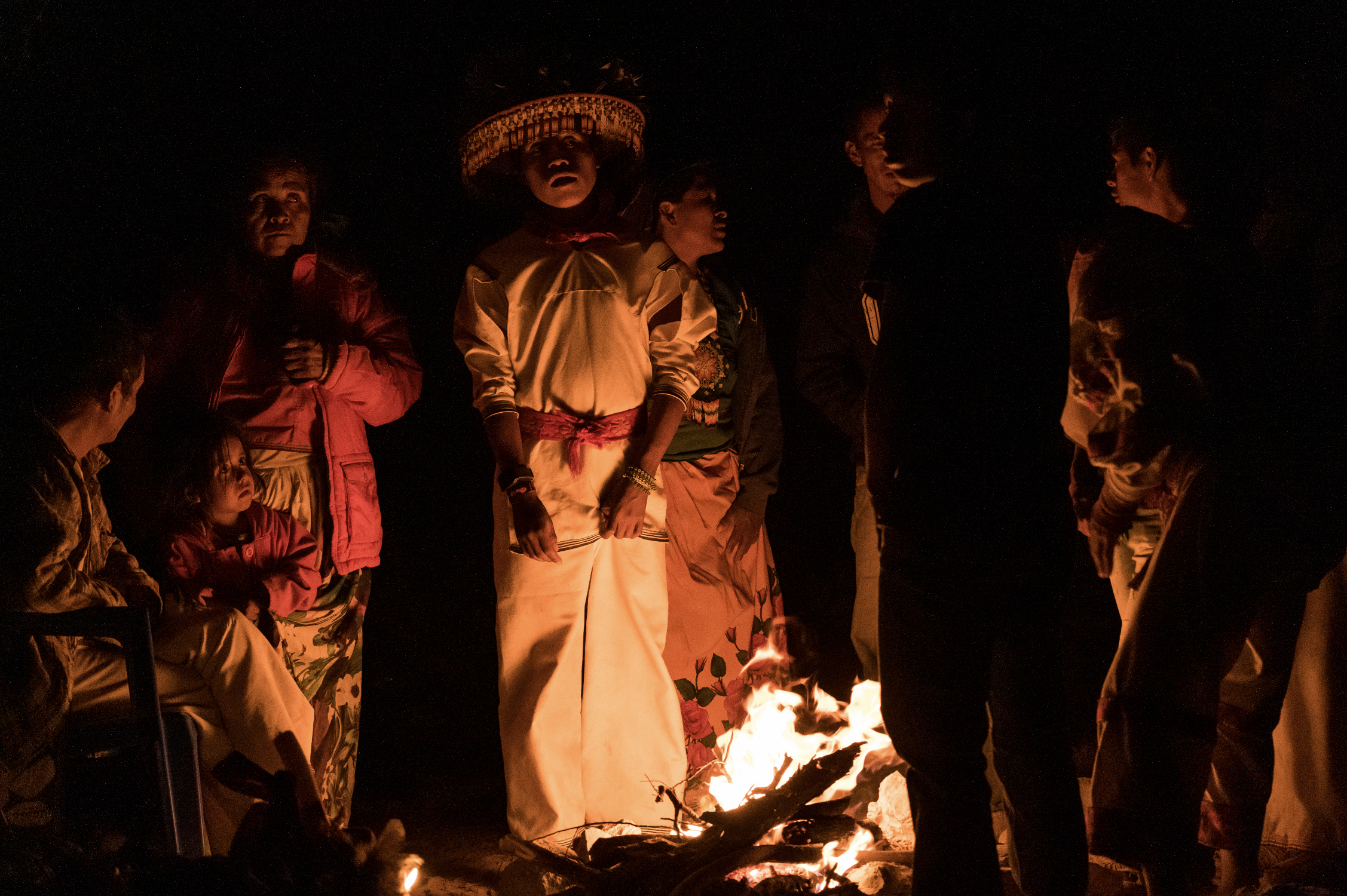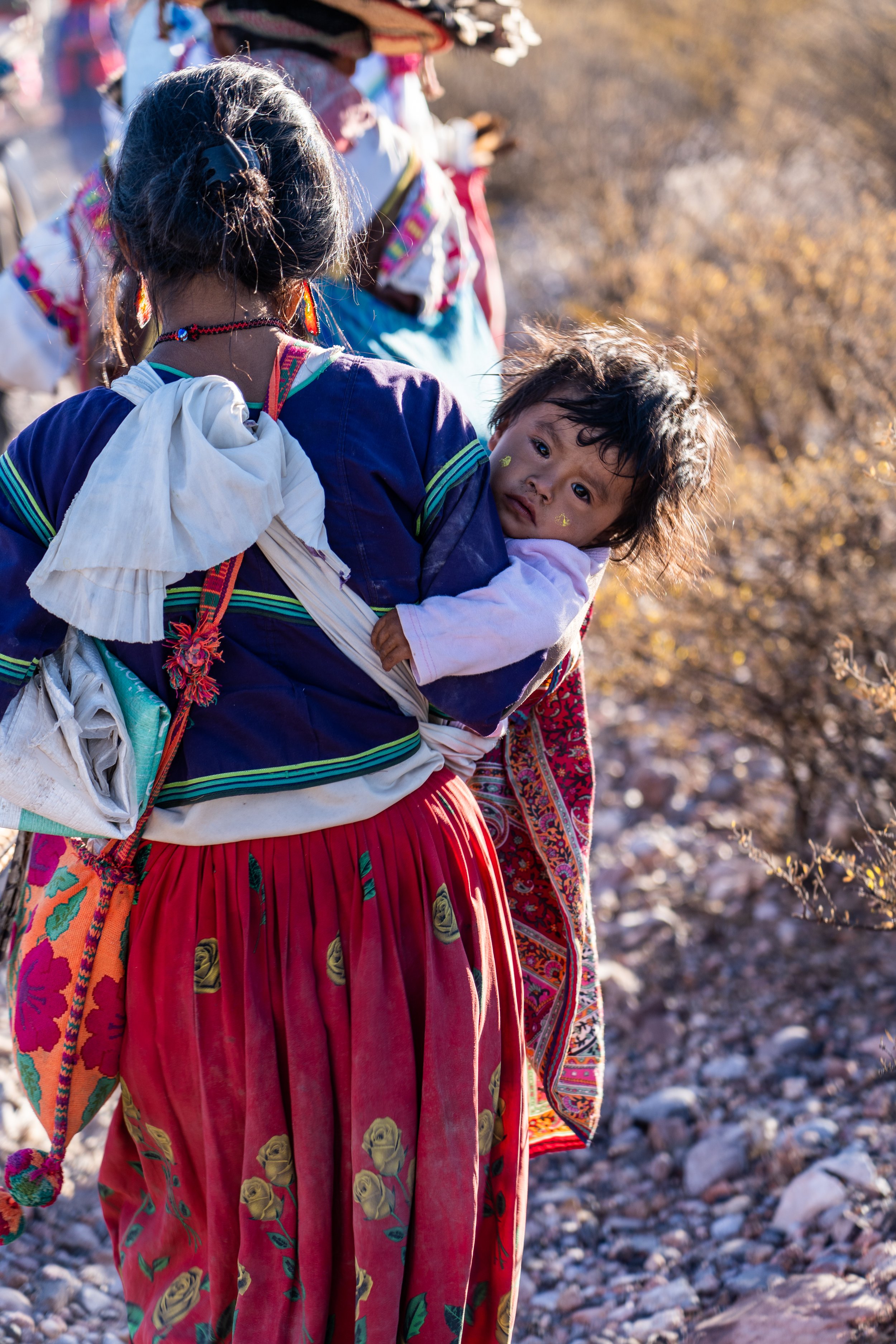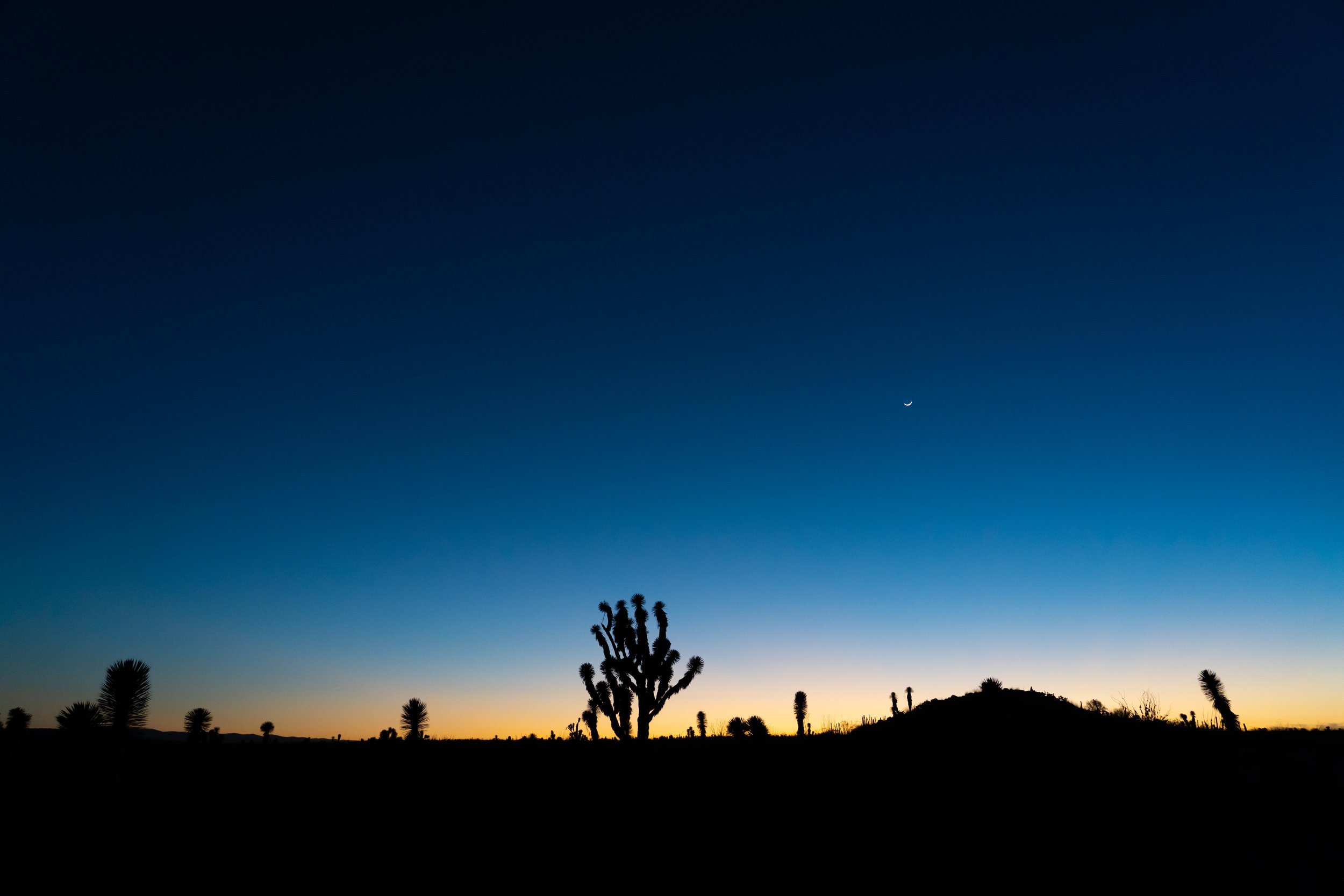PEREGRINACIÓN WIXÁRIKA A WIRIKUTA
The Wixárika people, known as Huichol in Spanish, originally from central Mexico, migrated to the remote regions of the Sierra Madre Occidental in response to Spanish colonization in the 16th century. This migration allowed them to preserve their traditions, language, and spiritual practices, avoiding forced assimilation and conversion to Catholicism.
For centuries, they have carried out the sacred pilgrimage to Wirikuta, a desert region in the north of San Luis Potosí, which they consider one of their most important spiritual sites where they believe the sun was born. Each year, the Wixárika make a pilgrimage to collect peyote, a sacred psychedelic cactus used in rituals and ceremonies. The pilgrimage represents a spiritual journey that reconnects them with their ancestors, preserving harmony between the natural and spiritual realms.
The collection of peyote is central to their spiritual practices, as it is believed to provide visions and guidance from their gods. This pilgrimage is not only a religious duty but also an act of resistance, ensuring the preservation of their cultural identity in the face of modern challenges, such as land exploitation. By maintaining this annual journey, the Wixárika people continue to honor their traditions and uphold a deep connection to their sacred lands and ancestors.
El pueblo Wixárika, conocido en español como los Huicholes, originario del centro de México, migró a las regiones remotas de la Sierra Madre Occidental en respuesta a la colonización española en el siglo XVI. Esta migración les permitió preservar sus tradiciones, lengua y prácticas espirituales, evitando la asimilación forzada y la conversión al catolicismo.
Durante siglos, han llevado a cabo la sagrada peregrinación a Wirikuta, una región desértica en el norte de San Luis Potosí, que consideran uno de sus sitios espirituales más importantes, donde creen que nació el sol. Cada año, los Wixaritari realizan esta peregrinación para recolectar peyote que utilizan en rituales y ceremonias. La peregrinación representa un viaje espiritual que los reconecta con sus ancestros, manteniendo la armonía entre los reinos natural y espiritual.
La recolección de peyote es central en sus prácticas espirituales, ya que se cree que les otorga visiones y guía de sus dioses. Esta peregrinación no solo es un deber religioso, sino también un acto de resistencia, que garantiza la preservación de su identidad cultural frente a los desafíos modernos, como la explotación de tierras. Al mantener este viaje anual, el pueblo Wixárika sigue honrando sus tradiciones y preservando una profunda conexión con sus tierras sagradas y sus ancestros.






